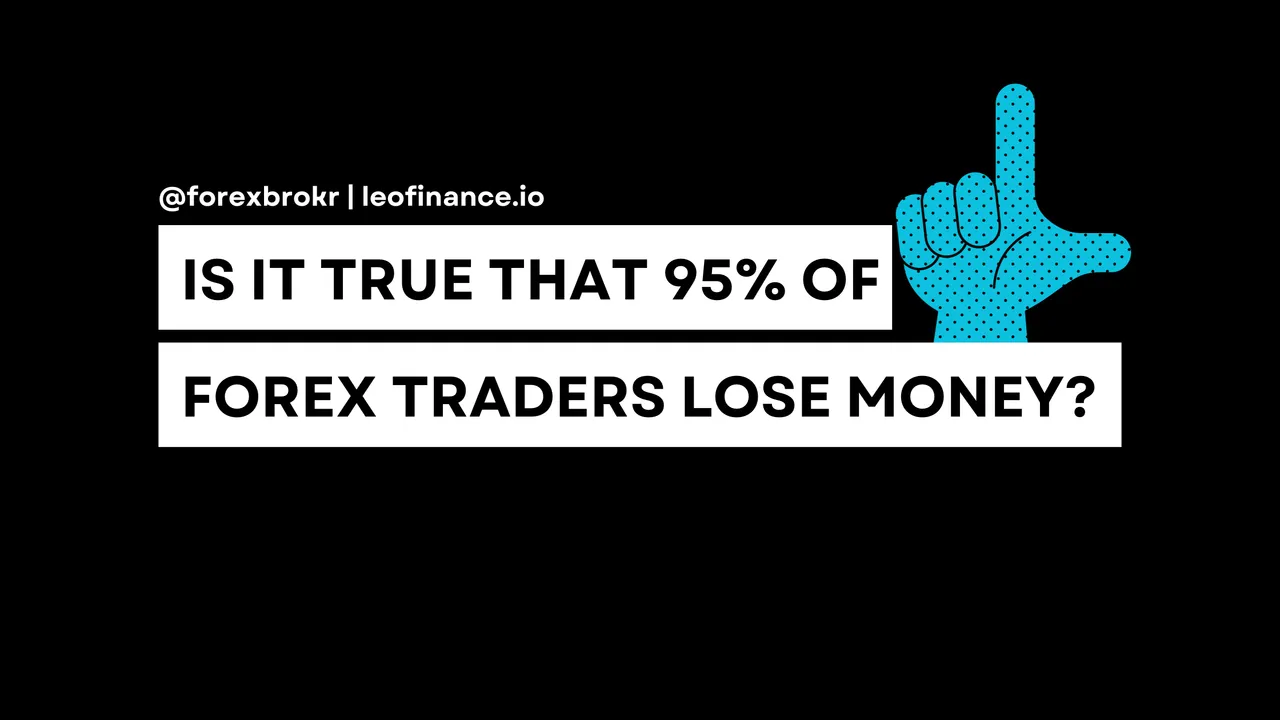
Direct from the desk of Dane Williams.
Look, I'm not going to sugar coat it.
Yes, it's true that 95% of forex traders lose money.
Within the forex trading industry, the statistic that 95% of traders lose money is often cited and I’m sorry to say that it's not just a myth.
The forex market is known for its high volatility, complexity and extremely messy broker marketing industry which can make it challenging for inexperienced traders to achieve consistent profits.
When you look at the statistics, only a fraction of forex traders actually manage to be profitable over the long term.
Not to mention from my experience, 95% of a broker’s book in the red is probably being generous.
This begs the question.
Why do so many traders struggle to make money consistently in the forex market?
One factor that I have to talk about is that forex brokers are well aware of this statistic and as such, take advantage of it.
They do so by putting low-risk clients on their b-book.
In simple terms, a forex broker operates two books:
- Their a-book
- Their b-book
The a-book consists of traders who are expected to be profitable in the long run or simply trade size too big to effectively manage risk on the b-book.
These traders typically have a history of profitable trading and therefore will make the broker more money on the spread as orders are passed onto LPs.
On the other hand, the b-book includes traders who are more likely to lose money.
Think your average retail trader who has signed up using an affiliate link from a known high risk, low reward gambler.
As you can see, forex brokers may choose to route trades from profitable traders to the interbank market (a-book), while keeping the trades of less successful traders in-house (b-book).
But what this does is unfortunately creates a situation where your broker's goals are no longer aligned with your goals as a trader.
Instead, they are incentivised to act in ways that let’s just say may raise your eyebrows as a client.
By separating traders into these two books, brokers have the opportunity to profit from the losses incurred by traders in the b-book.
While this doesn't imply that every broker who employs this strategy is inherently shady, it does introduce an element of mistrust between you and your forex broker.
Mistrust stemming from the potential for your broker to manipulate their own price feeds in a practice known as stop hunting.
It's essential for traders to thoroughly understand this practice and carefully choose their brokers.
Some brokers may offer more transparency about their execution methods and whether they operate a b-book.
Others may provide more favourable trading conditions for traders placed in the a-book, such as lower spreads and commissions.
However, let me just stress once again that I’m not saying all brokers with any sort of b-book are shady.
B-booking traders can always be explained as an in-house risk management practice.
It’s up to you as a trader to do your thorough research on a broker before choosing to trade with them and understand if this will raise red flags.
Just know there are reputable brokers in the industry who prioritise fair and transparent trading conditions for all clients.
Selecting a trustworthy broker is a crucial step in safeguarding your interests and ensuring a more transparent and secure trading experience.
So going back to the original question, the statistic that 95% of forex traders lose money is a sobering reality in the world of currency trading.
While the challenges are significant, it's not impossible to be among the minority of profitable traders.
Education, discipline, risk management and choosing the right forex broker are all crucial factors that can contribute to a trader's success in this highly competitive market.
So, while the odds may seem stacked against you, with the right approach and dedication, it's possible to join the top 5% who make money.
Best of probabilities to you.